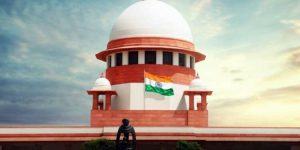Death Sentence:

The Supreme Court on September 19 referred to a larger Bench issues relating to procedural norms for imposing the death sentence.
- The intervention is seen as a major step in plugging gaps in the way in which trial courts award the death sentence.
- Section 235 of the Code of Criminal Procedure (CrPC) requires a judge to hear the accused after conviction on the question of sentence, and then pass sentence on him according to law.
- In 1980, the Supreme Court upheld the constitutionality of capital punishment in ‘Bachan Singh v State of Punjab’ on the condition that the punishment will be awarded in the “rarest of the rare” cases.
- Crucially, the ruling also stressed that a separate sentencing hearing would be held, where a judge would be persuaded on why the death sentence need not be awarded.
- This position was reiterated in several subsequent rulings of the court, including in ‘Mithu v State of Punjab’, a 1982 ruling by a five-judge Bench that struck down mandatory death sentence as it falls foul of the right of an accused to be heard before sentencing.
- However, there are conflicting rulings on when that separate hearing is supposed to take place.
- At least three smaller Bench rulings have held that while a separate sentencing hearing is inviolable, they can be allowed on the same day as the conviction.




